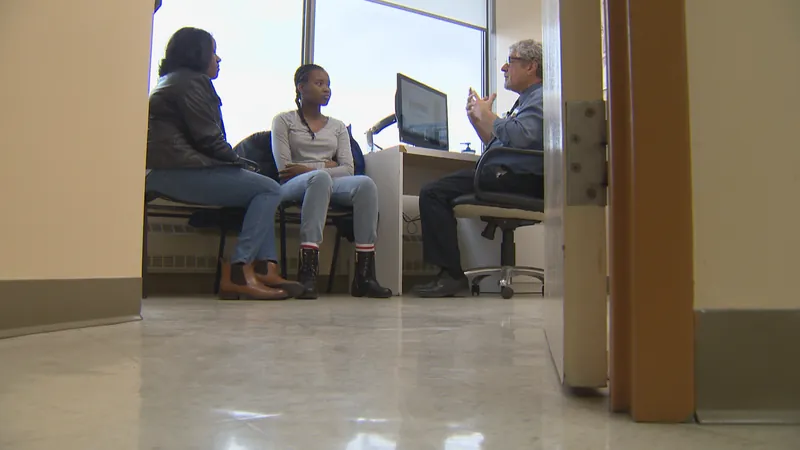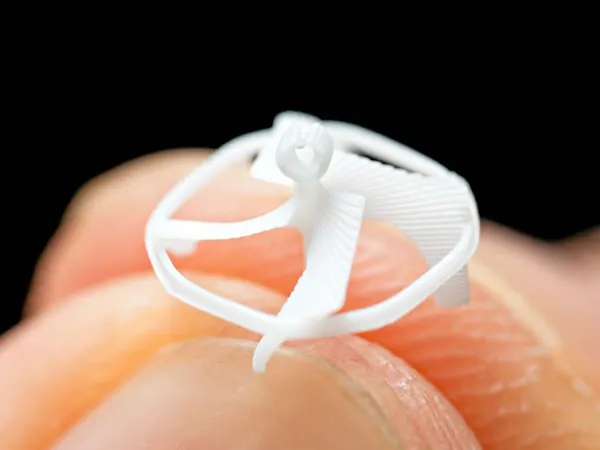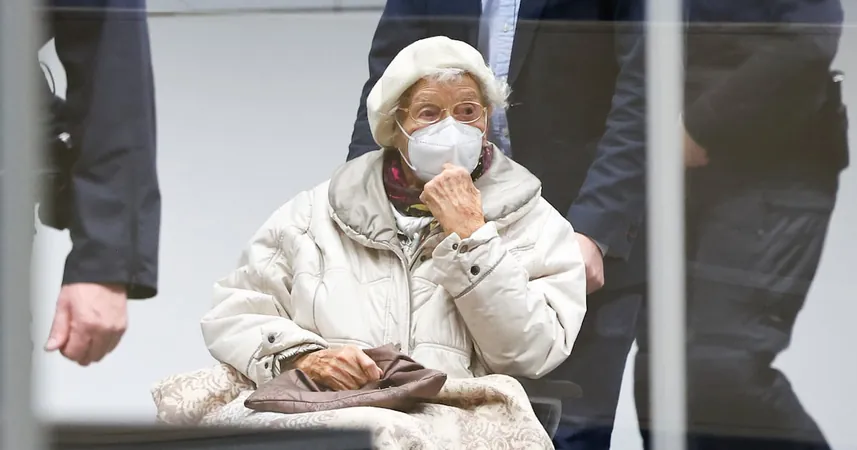
Unmasking the Hidden Crisis: Medical Gaslighting and Its Grave Consequences for Canadians
2025-01-11
Author: Amelia
Introduction
The University of Windsor is spearheading a crucial study shedding light on the phenomenon of medical gaslighting, an issue that has afflicted countless Canadians, especially women and minorities. This alarming trend often leads to dire consequences, with study coordinator Marissa Rakus noting, “This kind of thing can lead to death.”
Personal Testimonies
In heartbreaking testimonials, individuals like Katrina Dobson describe their traumatic experiences with medical gaslighting. Despite suffering from chronic conditions such as Eagle syndrome, a rare bone disorder causing severe neck pain, hypermobile Ehlers-Danlos syndrome, and mast cell activation syndrome, Katrina has faced skepticism and dismissal from medical professionals.
“During one hospital visit, my throat was closing, and I couldn’t breathe for five hours. When I finally got attention, the nurse questioned whether I had intentionally ingested walnuts and implied that my reactions weren’t real,” recounted Katrina, recalling a terrifying moment that nearly jeopardized her life. Adding to her disbelief, the hospital even contacted her husband to verify her breastfeeding status, demonstrating a shocking lack of trust in her anxieties about her health.
Psychological Repercussions
Such experiences have profound psychological repercussions, pushing individuals like Katrina to doubt their own reality and avoid seeking necessary medical help. “I felt like a hypochondriac, like my pain was all in my head,” she reflected.
Systemic Issues
The University of Windsor’s expansive study is uncovering that nearly every woman has encountered medical gaslighting at some point. Rakus pointed out the systemic nature of this issue, stating, “The medical system was historically built by men for men, and until the 1990s, women were largely excluded from clinical trials.” The ramifications of this exclusion remain evident today, as educational gaps persist in understanding and addressing the specific health needs of underrepresented groups.
Changing the Narrative
Rakus emphasized that changing this narrative starts with improving medical education: “It’s about how medical schools educate future doctors. We need more focus on women’s health and the unique challenges faced by minority groups.” Ignoring these factors contributes to medical gaslighting, which can severely undermine a patient’s confidence in their own lived experiences.
Emotional Impacts
The stress from these encounters can lead to a range of emotional issues, including anxiety, depression, and isolation, as Rakus elaborated: “You feel like you’re going crazy. The trauma from these experiences only exacerbates the pain and suffering.”
Advocacy and Support
For those who have endured medical gaslighting, taking proactive steps can help mitigate its impacts. The Dobsons advocate for self-advocacy, emphasizing the importance of seeking support, conducting research, and engaging in support groups. “Everyone needs to speak up for change to happen,” Katrina asserted. Her husband, Landon, echoed her sentiments by encouraging individuals to persistently seek second opinions and advocate for their health vigorously.
Collaborative Healthcare
The collaborative nature of healthcare is paramount. Rakus remarks, “It needs to be a team effort. The lived experiences of patients can guide doctors in effectively addressing their concerns.”
Call to Action
The University of Windsor is currently inviting participants to join this pivotal study until February, as they seek to document these experiences and advocate for a more equitable healthcare system in Canada.
As awareness of medical gaslighting grows, it is crucial for individuals to share their stories and push for a healthcare system that listens and responds to their needs. Will this be the catalyst for the change that so many are desperately waiting for? The urgency to act is now.









 Brasil (PT)
Brasil (PT)
 Canada (EN)
Canada (EN)
 Chile (ES)
Chile (ES)
 Česko (CS)
Česko (CS)
 대한민국 (KO)
대한민국 (KO)
 España (ES)
España (ES)
 France (FR)
France (FR)
 Hong Kong (EN)
Hong Kong (EN)
 Italia (IT)
Italia (IT)
 日本 (JA)
日本 (JA)
 Magyarország (HU)
Magyarország (HU)
 Norge (NO)
Norge (NO)
 Polska (PL)
Polska (PL)
 Schweiz (DE)
Schweiz (DE)
 Singapore (EN)
Singapore (EN)
 Sverige (SV)
Sverige (SV)
 Suomi (FI)
Suomi (FI)
 Türkiye (TR)
Türkiye (TR)
 الإمارات العربية المتحدة (AR)
الإمارات العربية المتحدة (AR)